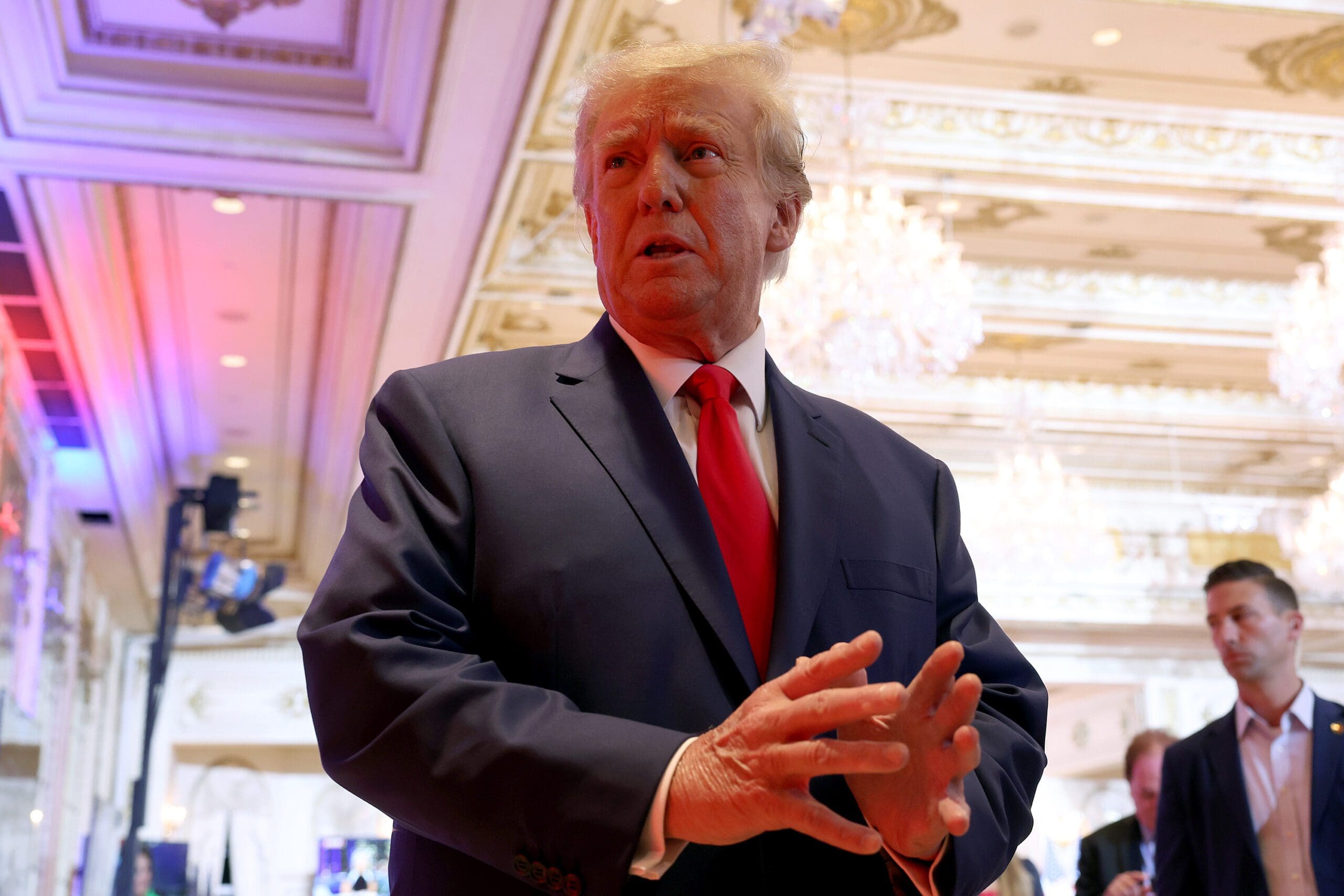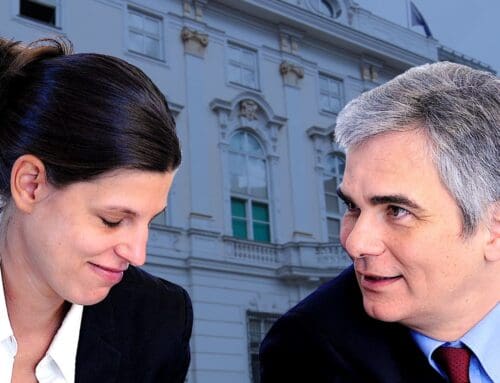
Opinion | Trump and His Disinfo Brigade Fall Flat
The red wave wasn’t the only conspicuous no-show on Election Day.
The so-called rising tide of political disinformation — spotted by think tankers, journalists at outlets as varied as the Associated Press and the Guardian„,“link“:{„target“:“NEW“,“attributes“:[],“url“:“https://www.theguardian.com/technology/2022/oct/24/tiktok-election-misinformation-voting-politics“,“_id“:“00000184-6c3c-dce9-a7cf-7cff212e0004″,“_type“:“33ac701a-72c1-316a-a3a5-13918cf384df“},“_id“:“00000184-6c3c-dce9-a7cf-7cff212e0005″,“_type“:“02ec1f82-5e56-3b8c-af6e-6fc7c8772266″}“>Guardian, and statesmen like Barack Obama — failed to break the shore. According to disinformation researchers speaking to the New York Times„,“link“:{„target“:“NEW“,“attributes“:[],“url“:“https://www.nytimes.com/2022/11/09/technology/midterms-election-misinformation.html“,“_id“:“00000184-6c3c-dce9-a7cf-7cff212f0000″,“_type“:“33ac701a-72c1-316a-a3a5-13918cf384df“},“_id“:“00000184-6c3c-dce9-a7cf-7cff212f0001″,“_type“:“02ec1f82-5e56-3b8c-af6e-6fc7c8772266″}“>New York Times, disinfo artists, of whom there are plenty, failed to convince many that the election process is rigged and corrupt.
It wasn’t from a lack of trying. As the Times notes, conservative activist Charlie Kirk called for the arrest of Phoenix election workers for broken voting machines, claiming that the outages were deliberate. Donald Trump aired similar suspicions on his Truth Social. The day before the election, Reuters reported an admission by Russian oligarch Yevgeny Prigozhin that he had interfered in American elections and intended to do so again.
What can we glean from disinformation’s poor performance in 2022? Turn-out was very high, almost matching that of the last midterm election, which wouldn’t be the case if large numbers of voters thought the process is such a sham that they avoided the polls. Have social media companies gotten better at diluting disinformation? Have voters gotten wise to disinformation? Or have we been exaggerating the effects of disinformation ever since the 2016 election?
It’s probably a little bit of each. In a late 2019 paper, David Karpf, a George Washington University professor of media and public affairs, cut against the grain by downplaying the effects of Russian disinformation on the 2016 election. Disinformation deserves our attention, Karpf concluded, but not our obsession, and that the 2016 Russian efforts had been something of a flop. “Generating social media interactions is easy; mobilizing activists and persuading voters is hard,” he wrote.
In one entertaining passage, Karpf illustrates the absurdity of “hacking” the minds of the electorate with digital propaganda. If the psychometric targeting techniques of social media are so effective, surely those sorts of techniques would be used to successfully induce consumers to, for example, purchase gym memberships. But they aren’t. So why believe that such targeting could tip federal elections — which come every two years and therefore are hard to refine — but not with gym memberships which can be constantly polished?
Continuing in his paper, Karpf points out that disinformation and propaganda have been traditionally blunted by the fact that America has never had a well-informed public. If the public doesn’t pay adequate attention to the “truth,” do we need to worry that much about their exposure to disinformation?
Talking about disinformation in today’s context, Karpf finds good news. “Voters, en masse, didn’t buy what Charlie Kirk and company were selling. If Republicans decide that mass disinformation is an electoral disadvantage, that’s a step towards the country becoming governable again,” he said in an interview. “It’s still a little too early to know what shared narratives will emerge from this election, particularly within the Republican Party network.”
Other explanations for the 2022 disinfo flop include the muzzling of serial liar Trump. Previously, he could stump from the White House and Twitter. In this election, his message was muted by his ban from the top social media networks and by the neglect of the press, which accords to presidents, not civilians, saturation coverage of their every thought.
It could also be that the voting public, which has never been given binding evidence of a stolen election, has grown bored with conspiratorial ideas peddled by the likes of Trump and his pillow-selling supporter, as this Washington Post story suggests. People have enough chaos in their lives with Covid, inflation, rising crime, layoffs and an impending recession, all of which can be documented, unlike the election-fraud lies. The process of social learning seems to have convinced most people to pay more attention to real dangers than imagined ones.
None of this is to suggest that we’re out of the disinformation woods yet. “I’ve long argued that the danger of mis- and disinfo isn’t that it will directly change a lot of votes. It’s that it will convince political elites that they can govern as though no one is watching,” Karpf says. About half of 370 candidates who had espoused their notions about a “stolen” presidential election won office on Tuesday. According to a report from the liberal Center for American Progress, published before the election, misinformation can change and worsen in the postelection period, as we saw after Trump’s 2020 defeat.
Trump, for one, is doing his best to make post-election disinformation worse than the pre-election variety. In a Friday Truth Social post, he urged his followers to help him stop the “very obvious CHEATING” by Democrats so that Republicans can take the Senate.
Good try, Donald. But how likely is it that a public that didn’t buy your 2020 election lies will embrace your 2022 lies?
All men are liars, and that’s the truth.„,“link“:{„target“:“NEW“,“attributes“:[],“url“:“https://www.youtube.com/watch?v=heNLjW4o5XE“,“_id“:“00000184-6c3c-dce9-a7cf-7cff21300005″,“_type“:“33ac701a-72c1-316a-a3a5-13918cf384df“},“_id“:“00000184-6c3c-dce9-a7cf-7cff21300006″,“_type“:“02ec1f82-5e56-3b8c-af6e-6fc7c8772266″}“>All men are liars, and that’s the truth. What’s your favorite Nick Lowe song? Send picks to [email protected]„,“link“:{„target“:“NEW“,“attributes“:[],“url“:“mailto:[email protected]“,“_id“:“00000184-6c3c-dce9-a7cf-7cff21300007″,“_type“:“33ac701a-72c1-316a-a3a5-13918cf384df“},“_id“:“00000184-6c3c-dce9-a7cf-7cff21300008″,“_type“:“02ec1f82-5e56-3b8c-af6e-6fc7c8772266″}“>[email protected]. No new email alert subscriptions are being honored at this time. My Twitter„,“link“:{„target“:“NEW“,“attributes“:[],“url“:“https://twitter.com/jackshafer“,“_id“:“00000184-6c3c-dce9-a7cf-7cff21300009″,“_type“:“33ac701a-72c1-316a-a3a5-13918cf384df“},“_id“:“00000184-6c3c-dce9-a7cf-7cff2130000a“,“_type“:“02ec1f82-5e56-3b8c-af6e-6fc7c8772266″}“>Twitter feed wants a Truth Social account. My Mastodon account wants you to follow it. My RSS„,“link“:{„target“:“NEW“,“attributes“:[],“url“:“https://t.co/tfg9KzdCxq“,“_id“:“00000184-6c3c-dce9-a7cf-7cff2130000b“,“_type“:“33ac701a-72c1-316a-a3a5-13918cf384df“},“_id“:“00000184-6c3c-dce9-a7cf-7cff2130000c“,“_type“:“02ec1f82-5e56-3b8c-af6e-6fc7c8772266″}“>RSS feed pronounces “disinformation” as “dezinformatsiya.”







